People
Students
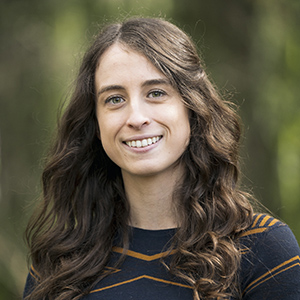
Tessa Chesonis
My research focuses on how different land management practices effect an ecosystem, specifically how it relates to wildlife habitat use and presence. I am passionate about partnering with Tribal Nations to further understand Traditional Ecological Knowledge (TEK) and learn a more holistic approach to ecosystem management. My hope is to collaboratively weave together TEK and Western science methods to create more resilient ecosystems and better inform conservation decision-making. For my research, I will work with both Oregon Tribal Nations and the Bureau of Land Management to examine the differences in wildlife activity between Tribal and Federal lands in southwest Oregon.
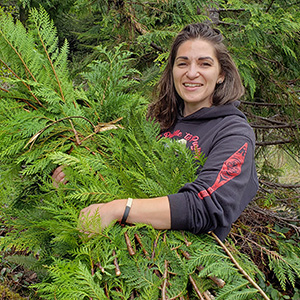
Ashley Russell
Ashley Russell is miluk coos and Pamunkey descendent and is an enrolled citizen of the Confederated Tribes of Coos Lower Umpqua, and Siuslaw Indians (CTCLUSI). She is recognized for her knowledge of CTCLUSI culturally significant species, including first foods and weaving materials, as well as her art and singing. She especially enjoys working with youth and fostering their reconnection to the lands of their ancestors, their cultural identity, and their heritage. Ashley earned a Bachelor's of Environmental Sciences with an emphasis on Fisheries and Wildlife Science at Oregon State University (OSU) in 2010 and completed an Herbal Immersion Program through the Chestnut School of Herbal Medicine in 2021. Ashley currently works for her Tribe as the Assistant Director of the Culture and Natural Resources Department where she coordinates and supports the development and implementation of all aspects of cultural knowledge transfer, including but not limited to planning cultural awareness and outreach programs and events to educate CTCLUSI citizens and the surrounding community about CTCLUSI culture. She also partners with other Indigenous nations as well as federal, state, and local agencies, stakeholders and private landowners to support the co-management of CTCLUSI resources within her Tribe's Ancestral Territory and the continued expression and continuity of her Tribe's culture and stewardship practices. She is currently pursuing a Master of Natural Resources through OSU's College of Forestry and will be working closing with Dr. Cristina Eisenberg on one of her Tribe's forest lands tracts to study the effects that various vegetation treatments and reforestation methods, including traditional CTCLUSI methods, have on culturally significant plant communities in the forest understory.
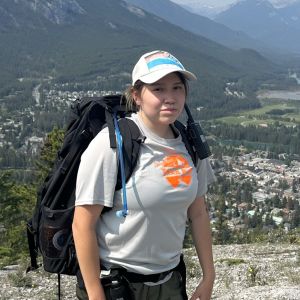
Monroe Fox
Oki/Hello! My name is Monroe Fox. My Blackfoot name is Anatsikakato’saakii (Pretty Star Woman). I’m from the Kainai Nation in southern Alberta, Canada. I’m 19 years old, and I’m an undergraduate at OSU in Natural Resources with a specialization in Indigenous Knowledge. I am very passionate about enthobotany, grassland and forest ecocultural restoration and research. My interests are music, reading, hiking and baking. I have experience in various instruments, but I focus on piano and guitar. Don’t hesitate to say hi!
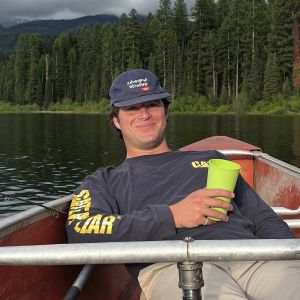
Henry DeLuca
Hello! My name is Henry DeLuca, I am coming from Missoula, Montana where I received an undergraduate degree from the University of Montana in Resource Conservation, as well as minors in Philosophy and Climate Change Studies. I am a graduate student in the Department of Forest Ecosystems & Society with a specific interest in environmental philosophy. My research will help to provide a philosophical examination of western science’s approach to natural resource management and its subsequent policies, and how the incorporation of Traditional Ecological Knowledge may be appropriately recognized and applied in contemporary and future land management practices.
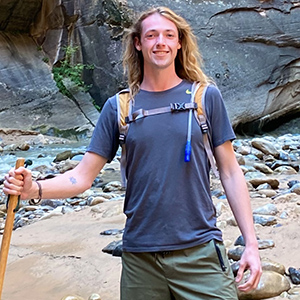
Justin Nelson
I aim to pursue an MS in Forest Ecosystems and Society, focusing on native seed productivity, Indigenous Knowledge, and ecocultural restoration. My interests include community ecology, ethnobotany, forest systems, and ecological ethics. I earned a BA in Music from the College of Charleston with a focus in vocal performance and jazz composition, along with a minor in Environmental and Sustainability Studies. I work closely with the Seeds of Success program to honorably harvest wild seeds for ecocultural restoration needs. For my research, I intend to braid Indigenous Knowledge and Western Science through partnerships with Oregon Tribal Nations and the Bureau of Land Management. I am passionate about advocating for community wellness and social justice and working to restore reciprocal relationships with the land through place-based co-stewardship.
Co-PIs
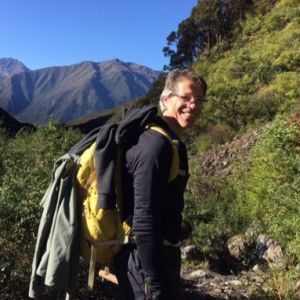
Professor Thomas H. DeLuca
Cheryl Ramberg-Ford and Allyn C. Ford Dean
College of Forestry
Oregon State University Corvallis, OR 97331-5704
Tel: 541-737-2004
tom.deluca@oregonstate.edu
Thomas H. DeLuca is the Dean of the College of Forestry at Oregon State university. A forest soil scientist and ecosystem ecologist, Professor DeLuca efforts in research, teaching and administration have been focused on sustainable land management and advancing our understanding of forest ecosystem function. Prior to his post at OSU, Professor DeLuca served as Dean of the College of Forestry and Conservation at the University of Montana, Director of the School of Environmental and Forest Sciences at the University of Washington, was the NERC-University Chair in the School of Environment, Natural Resources and Geography at Bangor University, UK, was a Senior Forest Ecologist with the Wilderness Society, and was a Professor of Forest Soils at the University of Montana in the College of Forestry and Conservation. During the past 30 years, Professor DeLuca has conducted research in a variety of topics across temperate, boreal, maritime and Arctic settings. Primary research interests include the influence of disturbance on N and C cycling in forest, prairie and tundra ecosystems, the fire ecology of temperate and boreal forests, biological N2 fixation in forest ecosystems, sustainable forest management and forest restoration. Professor DeLuca has authored more than 120 refereed research papers. Professor DeLuca received his Ph.D. from Iowa State University in Soil Biology and Biochemistry; M.S. from Montana State University in soils; B.S. from the University of Wisconsin-Madison in Soil Science.
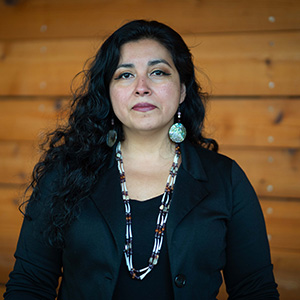
Luhui Whitebear
Luhui Whitebear (she/her) is an enrolled member of the Coastal Band of the Chumash Nation with Huestec and Cochimi ancestry. She is an assistant professor in the School of Language, Culture, and Society (Indigenous Studies) and has served as the Center Director of the Kaku-Ixt Mana Ina Haws. Institutionally Luhui serves on the core leadership of the President’s Commission on Indigenous Affairs and on Faculty Senate representing the College of Liberal Arts. Prior to her professional role at OSU, she spent ten years with the Confederated Tribes of Grand Ronde as their College Advising & Scholarship Coordinator. Luhui is a mother, poet, and activist engaged in community-based work. Dr. Whitebear received her PhD from Oregon State University (OSU) in Women, Gender, and Sexuality Studies; MA from OSU in Interdisciplinary Studies; BS degrees from OSU in Anthropology and in Ethnic Studies.
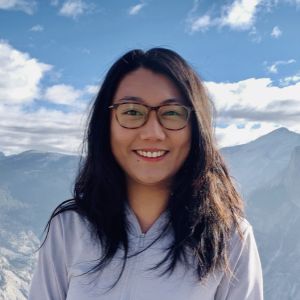
Si Gao
Dr. Si Gao is an Assistant Professor in the Department of Environmental Studies at California State University, Sacramento. She is also a courtesy faculty in the College of Forestry at OSU. Si holds an M.S. in Environmental & Forest Sciences from the University of Washington and a Ph.D. in Forest & Conservation Sciences from the University of Montana. She is a soil ecologist and biogeochemist whose work focuses on understanding how agricultural, forest, and rangeland management practices influence soil health and ecosystem functions. Her current research broadly includes sustainable forest management, Traditional knowledge of landscape stewardship, fire, charcoal, ecosystem carbon and nutrient cycling, greenhouse gas dynamics, soil organic matter persistence, and the impact of cultural fire stewardship practices on the soil system.
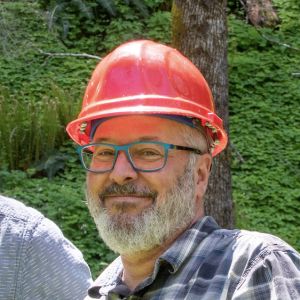
Michael’s research and teaching focus is environmental ethics and philosophy: from the concept of wilderness to topics in the philosophy of ecology, from hunting ethics to theories of environmental education, from topics in wildlife ecology and conservation biology to questions about science and advocacy and the philosophical work of Aldo Leopold. He is the author of many professional and popular articles, and the author or editor of four books in and around the area of environmental ethics including: The Great New Wilderness Debate (1998), The Wilderness Debate Rages On: Continuing the Great New Wilderness Debate (2008), and American Indian Environmental Ethics: An Ojibwa Case Study (2004), all with J. Baird Callicott, and the award-winning book Moral Ground: Ethical Action for a Planet in Peril (2010) with Kathleen Dean Moore.
